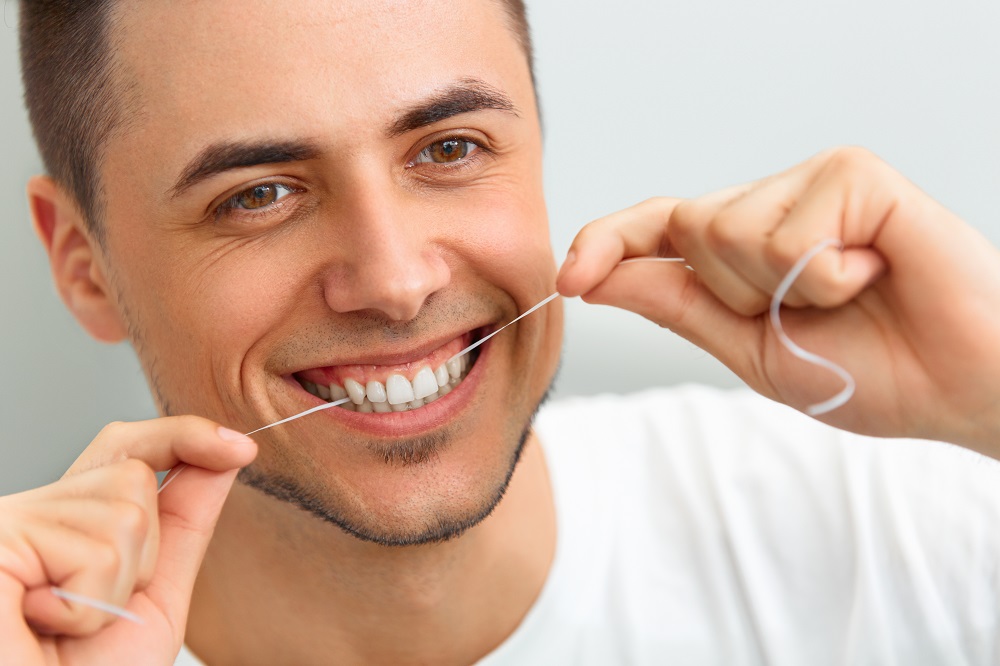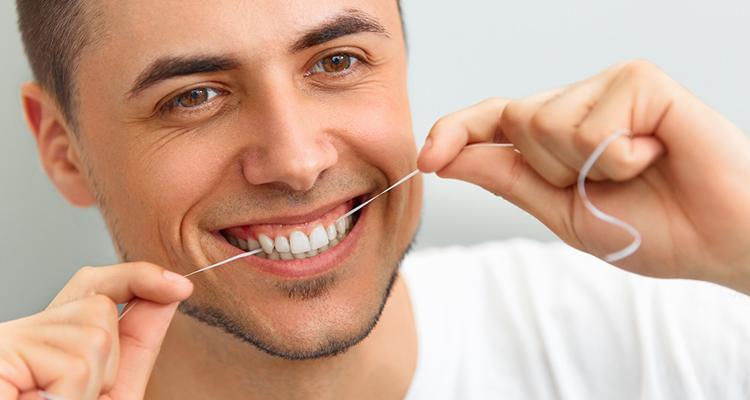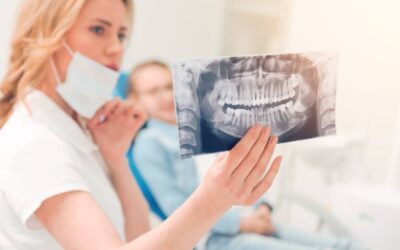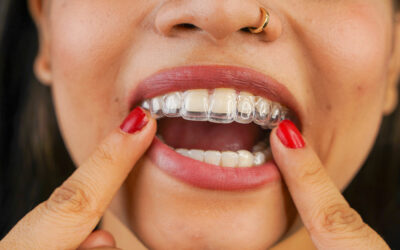 At its core, preventative dentistry is essentially the practice of routinely cleaning, examining, and taking care of your teeth in order to prevent gum disease, cavities, worn enamel, and more.
At its core, preventative dentistry is essentially the practice of routinely cleaning, examining, and taking care of your teeth in order to prevent gum disease, cavities, worn enamel, and more.
There are several forms of preventative dentistry, including daily brushing, flossing, and regular dental cleanings; each of which is necessary in order to maintain good oral health.
The goal of preventative dentistry is to keep gum disease, cavities, tooth sensitivity, and other common dental conditions at bay. By preventing gum disease and cavities or reversing the early signs of these conditions, patients can enjoy a lifetime of bright healthy smiles.
What benefits does preventative dentistry provide?
Aside from healthy teeth and an attractive smile, preventative dentistry can greatly reduce the risk of cavities, gingivitis, enamel loss, periodontitis, and other common dental problems.
By reducing the risk of these dental problems, preventative dentistry can also reduce the risk of other health problems that are linked to poor oral health, such as:
- Cardiovascular disease
- Diabetes
- Strokes
In addition to reducing the risk of these health issues, preventative dentistry can save you money as well. Even with good dental insurance, the costs of treating dental issues and conditions can add up quickly.
Although preventative dentistry may not entirely eliminate the need for braces (or Invisalign), fillings, dental implants, or root canals, it can definitely save you money by reducing the need for these treatments.
Who does preventative dentistry benefit?
Preventative dentistry benefits everyone. Since regular dentist visits can help identify denture stomatitis and mouth cancer, even people with dentures can benefit from preventative dentistry.
Oral health is also connected to your overall health. Since the mouth is a bacterial breeding ground, maintaining good oral health can benefit your overall health as well.
Therefore, while preventative dentistry is particularly beneficial for children and young adults, it can actually benefit people of all ages.
What is plaque?

Plaque is a sticky, soft film containing millions of bacteria. If not regularly removed through brushing, flossing, and dental cleanings, the bacteria in plaque can cause gum disease and tooth decay.
How so? When you eat, plaque bacteria use the sugars contained in many foods to produce acids. These acids eat away at the protective enamel coating your teeth. Repeated exposure to these acids can cause the breakdown of the enamel and eventually result in cavities.
Furthermore, when not removed by regular brushing and flossing, plaque can harden and form tartar. As tartar collects along the gum line, brushing and flossing plaque away can become more and more difficult, leading to more and more tartar buildup.
As plaque, tartar, and bacteria continue to build up, they can affect your gum tissue, leading to swollen, red, and inflamed gums. This is called gingivitis, which is an early stage of periodontitis or gum disease.
Periodontitis is a serious form of gum disease that occurs as a result of a bacterial infection. It causes your gums to dissolve or recede and the bone supporting your teeth to slowly break down.
In addition to affecting your smile by revealing underlying tooth structure that should not be visible, it can also lead to tooth loss.
Can preventative dentistry help minimise plaque buildup?
Yes, regular brushing, flossing, and cleanings can certainly help. However, adjusting your diet can also help.
Since plaque requires sugars and carbohydrates to form, the more sugar and carbs you eat, the more plaque formation you will have. In order to prevent plaque buildup, it’s best to avoid or limit your intake of candy, soda, and other sweets as much as possible.
That being said, many healthy, non-sweet foods, such as bread, potatoes, corn, and cereal, also contain carbohydrates. So, some plaque will form whenever you eat, even if you completely eliminate sweets from your diet.
The best way to resolve this is to brush and floss twice daily. Not only does brushing remove plaque, but it removes food particles that develop into plaque as well.
Meanwhile, flossing helps remove plaque and food particle from in between your teeth where toothbrush bristles can’t reach.
How can regular dentist visits help prevent plaque, tartar, and tooth decay?
Aside from scraping away plaque and tartar with specialised tools, regular fluoride treatments can help keep your teeth healthy and resist decay.
Your dentist may also recommend toothpastes with the right level of fluoride to boost tooth protection at home. If your teeth are at a higher risk of decay, a dentist or dental hygienist may prescribe a toothpaste with a higher concentration of fluoride.
Does an apple a day really keep the dentist away?
No, while the fibres in apples do help clean the teeth, apples contain natural sugars that also develop into plaque.
The best way to prevent plaque buildup and promote healthy teeth is to brush and floss twice daily and regularly visit the dentist for routine cleanings and exams.
What is dental erosion and can it be prevented?
Dental erosion is simply the loss of enamel due to acid exposure. When enamel is eroded, your teeth lose their protective coating and become more susceptible to pain and sensitivity.

Acids can be found in many foods and drinks, especially citrus fruits, fruit juice, and fizzy drinks. Aside from regular brushing, flossing, and dentist visits, the best way to prevent dental erosion is limit your intake of these acidic foods and drinks.
We also recommend not brushing your teeth for at least an hour after drinking or eating anything acidic. When you eat or drink, your enamel softens briefly and loses minerals. By waiting for an hour after eating or drinking to brush your teeth, your enamel will be able to restore itself and keep from being brushed away.
Can smoking or drinking damage my teeth and gums?
Yes, both smoking and drinking can negatively affect the health of your teeth and gums.
Smoking can stain your teeth, worsen gum disease, and lead to tooth loss or even cancer.
Alcoholic drinks can also cause mouth cancer, and since some mixed drinks can contain a lot of sugar and acids, drinking them in large amounts can cause enamel erosion and tooth decay.
If you drink and smoke, you’re at an even a greater risk of experiencing poor dental and oral health.
Is there anything I can do at home to prevent tooth and gum decay?
Yes, in order to help keep your teeth and gums healthy, it’s critically important to follow a good at-home dental hygiene routine. We recommend the following:
- Brush your teeth with a fluoride toothpaste once in the morning and once before bed.
- Brush according to the instructions of your dentist or dental hygienist.
- Do not rinse your mouth after brushing. This will allow the fluoride to remain on your teeth for longer.
- Use floss or interdental brushes to clean in between your teeth after and in between brushes.
- Use mouthwash. Fluoride and antibacterial ingredients can be found in many mouthwashes to help prevent gum disease and decay. Rather than using mouthwash after brushing, use it in between brushes for added protection all day long.
What else can I do?
In addition to brushing, flossing, and using mouthwash, there are other steps you can take to prevent tooth decay, gum disease, and the need for costly treatment, including:
- Minimise your consumption of sugary foods and drinks.
- Use a straw when drinking acidic or carbonated drinks to reduce their effect on your teeth.
- Regularly chew sugar-free gum to boost saliva production, prevent dry mouth, reduce plaque, and fight against dental decay.
- Regularly visit your dental team as often as recommended.
What oral care and teeth cleaning products should I use?

Today, there are several specialised toothpastes designed to specifically help prevent plaque, gum disease, and tooth sensitivity. “Whitening” toothpastes are also available but can be abrasive and generally don’t work any better than normal toothpastes at whitening your teeth.
Mouthwashes are also helpful, especially those containing antibacterial ingredients.
As far as toothbrushes go, we recommend using a brush with soft bristles and a small to medium-sized head.
If possible, use an electric toothbrush with an oscillating head. Studies have shown they are able to remove nearly twice as much plaque as standard toothbrushes.
What are sealants?
Sealants are a bonding material that is applied over a tooth or teeth to create a protective barrier against bacteria. They are particularly helpful with children and can be applied as soon as a child’s permanent molars appear.
Can preventative dentistry help prevent or detect oral cancer?
With only a 60 percent chance of survival, oral cancer shouldn’t be taken lightly.
Not only can preventative dentistry help prevent the formation of oral cancer through regular thorough cleanings, but it can help detect it early on to increase your odds of survival as well.
Here are a few reasons to visit your dentist and regularly undergo an oral cancer screening:
- It may save your life. Oral cancer is a serious disease. However, you can increase your odds of beating it by up to 20 percent by catching it early on.
- It’s easy. There’s no obtrusive poking or prodding with an oral cancer exam. There’s also no need to go out of your way to have on performed. In fact, you can simply have your dentist check for signs of oral cancer during a routine dental exam.
- It’s inexpensive. When incorporated into your regular preventative dental exam, there are usually no extra charges to check for oral cancer.
Does insurance cover preventative dental care?
Yes, most dental plans cover preventative dental and many have low or even no gap for routine dental checkups. This includes cleanings and oral exams.
However, the costs can climb for other types of dental treatment. Essentially, the more complicated a procedure is, the more it will cost you out of pocket. This is one of the reasons preventative dentistry is so important.
Recap – Best Practices for Healthy Teeth
- Brush your teeth twice daily. The most important aspect of preventative dentistry is to brush your teeth twice each day with a toothbrush and fluoride toothpaste approved by your dentist or dental hygienist. The way you brush is also important. Make sure to take your time and gently move the brush in small circular motions in order to remove as much plaque as possible. Also, don’t forget to brush your tongue. Doing so will help remove additional bacteria from your mouth and freshen your breath as well.
- Floss Daily. Flossing each day after you brush and in between meals will help clean food particles and bacteria from in between your teeth. However, as is the case with brushing, it’s important to floss correctly in order to gain the most benefit. Just ask your dentist to demonstrate proper flossing techniques during your next preventative dentistry appointment.
- Use mouthwash. Many people assume mouthwash only helps whiten teeth, but it actually does much more. In fact, it also reduces acid levels in the mouth, cleans the gums and areas around the gum line that are hard to reach with a brush, and adds minerals back into the teeth. If you’re unsure of which mouthwash to use, ask your dentist. Some mouthwashes are better for children, and some are better for individuals with sensitive teeth. Depending on the state of your oral health, your dentist may recommend a prescription mouthwash for added protection and care.
- Eat a well-balanced diet. Eating a well-balanced diet will provide your teeth with the vitamins and nutrients they need to remain healthy and strong. Meanwhile, limiting your sugar intake will reduce plaque buildup and help prevent the need for costly dental treatments down the road.
- Visit your dentist. Brushing and flossing is great, but taking proper care of your teeth also means visiting a dentist every six months for routine cleanings, checkups, and preventative care. That being said, the higher your risk for dental problems, the greater you’ll benefit from more frequent visits.
If you’re without a dentist or unhappy with your current dental provider, give us a call. At 123 Dental, we strive to provide the very best service and care for every patient we see.






